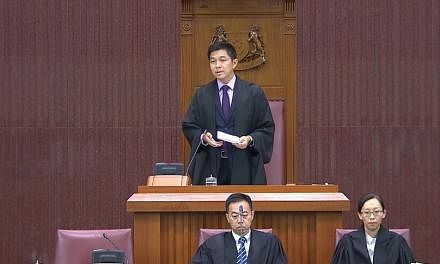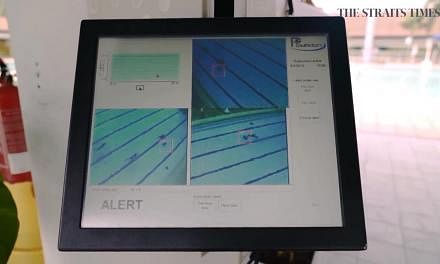SINGAPORE - Learning to think like a computer does not need to involve perusing lines of programming code. It can begin with tallying up the differences between fruits and vegetables, a task that even pre-school children can do.
This has been the message to parents from the team behind Tiny Thinkers, a pilot non-profit initiative to equip young children from all backgrounds with computational thinking skills.
It is the first organisation to receive funds from a new digital readiness component of the Our Singapore Fund (OSF), launched in 2016.
Projects can get up to $20,000, as part of the national goal to help the community get ready for a digital future.
"We believe that every Singaporean can be a digitally connected and engaged citizen," said Communications and Information Minister S. Iswaran in Parliament on Monday (March 4), during the debate on the budget of the Ministry of Communications and Information (MCI).
"Building digital readiness is a national effort, involving the Government, businesses, communities and individuals," he added
Mr Iswaran was replying to Mr Cedric Foo (Pioneer) and Nominated MP Lim Sun Sun on what is being done to supplement digital skills taught in schools.
The Tiny Thinkers team - comprising Nanyang Technological University communications undergraduates Germaine Tan, Chen Peijun, Teo Yisi and Jermaine Lau - have been conducting a series of free coding workshops for parents in the past two weeks.
At the workshops, parents and their children are given both online and offline activities which they can do together, like an app that allows children to use physical Pocky snack sticks to chart a route for a virtual character.
About 330 parents have signed up in total, with the last group of five one-hour sessions taking place on Saturday (March 9).
"Computational thinking is using the logic behind how computers work to solve problems. For example, children can learn to recognise patterns through packing groceries in the family fridge and also how to break down a big problem into smaller parts," said Ms Tan.
"Given Singapore's Smart Nation initiative, we felt it was important for children to learn these skills. As the barriers to entry to such opportunities can be high, we also wanted to make computational thinking more accessible to families of various backgrounds," added the 23-year-old.
Separately, a new Digital Participation Pledge has attracted commitments from 270 organisations, which will take proactive actions to be inclusive with digital efforts by equipping employees with digital skills and educating customers to go digital.
The MCI targets to have 3,000 organisations on board the Pledge by 2021.












